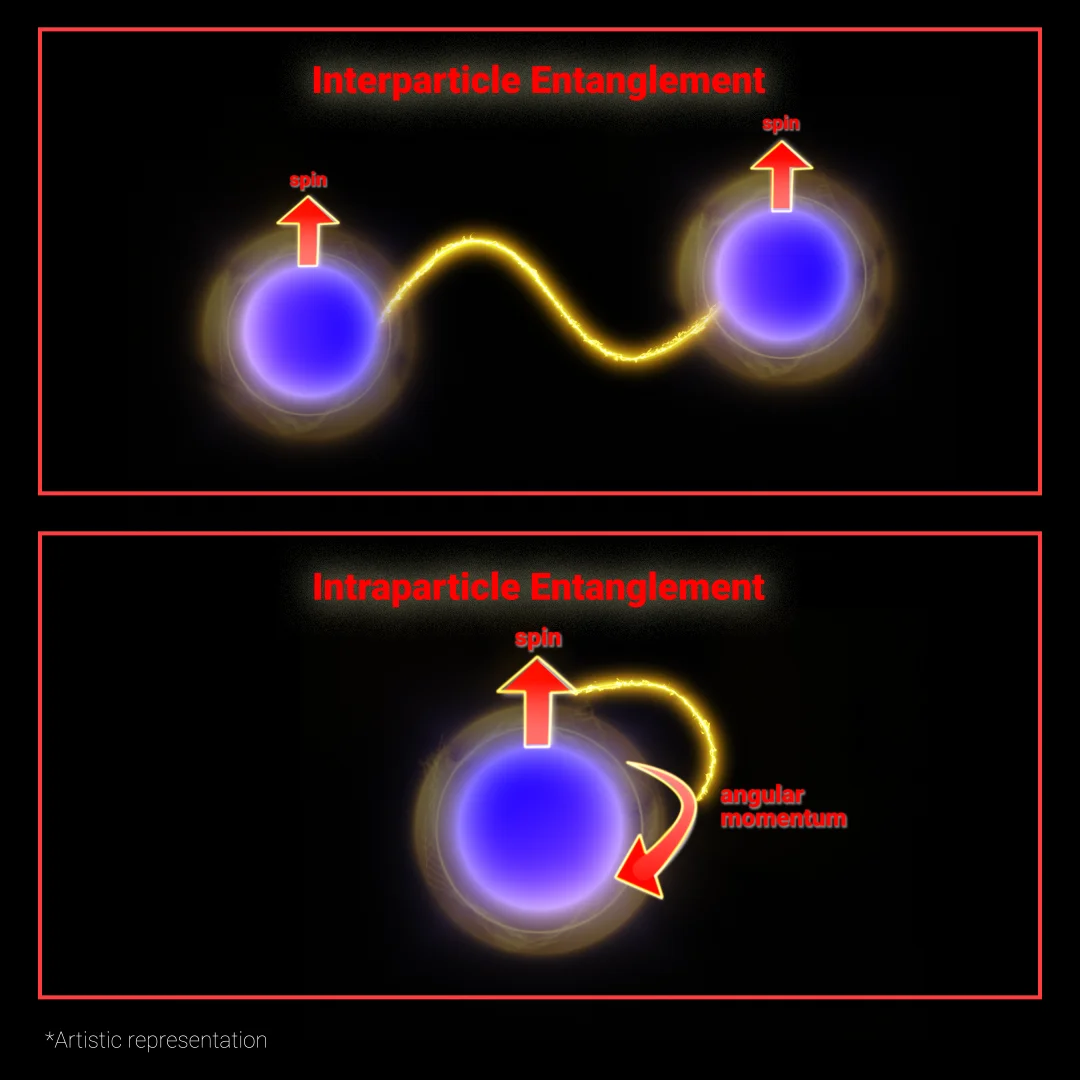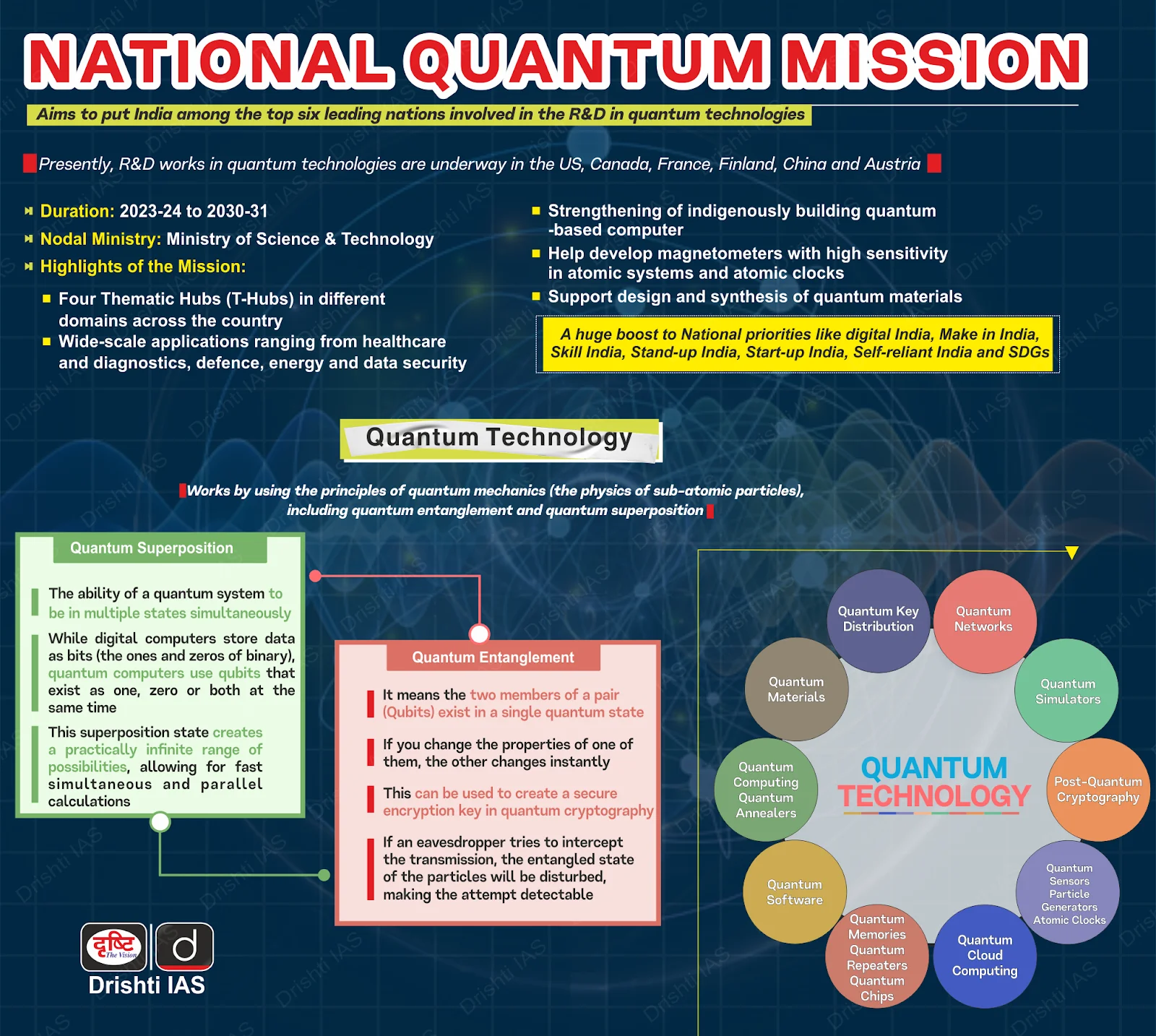Noise Effect on Quantum Entanglement | 18 Jul 2025
Scientists from Raman Research Institute (RRI), IISc Bangalore, IISER Kolkata have found that quantum noise can sometimes enhance, revive, or even create entanglement, challenging earlier beliefs that it only disrupts quantum systems.
Quantum Entanglement
- Quantum entanglement refers to a phenomenon in quantum mechanics where two or more particles become interlinked, such that the state of one particle instantly determines the state of the other, regardless of the distance.
- It forms the basis of advanced technologies like quantum computing, quantum cryptography, and quantum communication,
- Types of Quantum Entanglement:
- Intraparticle entanglement, where different properties (e.g., spin and path) of a single particle are entangled.
- Interparticle entanglement, the more common form, involving entanglement between separate particles.
Quantum Noise
- About: Quantum noise refers to random disturbances arising from a system’s interaction with its environment, often leading to loss of coherence (decoherence) and degradation of quantum properties like entanglement.
- Types: Amplitude damping (energy loss), Phase damping (loss of phase coherence), and Depolarizing noise (randomization of the quantum state).
Noise Effects on Entanglement
- The study found that amplitude damping can create, preserve, or revive entanglement in intraparticle systems, while phase damping and depolarizing noise are less effective.
- Also, intraparticle entanglement was found to be more resilient to noise compared to interparticle entanglement, which showed only steady decay with no revival or generation under noise.
- The study introduced a realistic Global Noise Model and developed a precise analytical formula to predict entanglement behavior under various noise types, providing a valuable tool for designing resilient quantum systems suited for real-world, noisy environments.
| Read More: Quantum Entanglement, Ultra-Secure Communication Using Quantum Technology |


